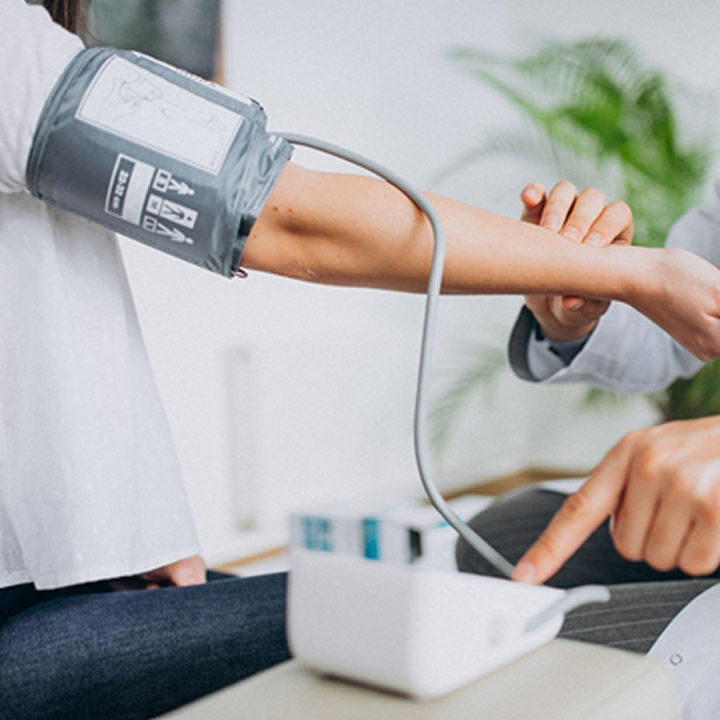In the years of evolution, many changes have been there in the human body and mind. Around the world, the climate changed drastically in the past hundred years. Also, our diet habits and lifestyle have changed to a large extent. At some point, we were living completely natural but then chemical fertilizers brought a revolution in the food crops.
People changed from a farm-fresh diet routine to processed instant food packets. In the earlier times, people had to do jobs with more physical activity daily. But due to the development in technology, machinery came to ease human effort in almost all areas. We stopped walking long distances, use a vehicle instead.
We stopped using heavy physical utensils and equipment in the kitchen and workplaces. They are replaced by machines running on electrical power. In short, the habits changed from regular heavy physical activity to inactivity. As a part of a developed lifestyle, emotional stress became high. Studies and careers made into a race where only winners shone.
Pressure is high for each and heathy & sharing relationships became less. Such big changes in our whole life led us to a new set of diseases. Yes, we are living in an era of lifestyle disorders. As medical science develops, new diseases are understood. One important condition among them is hypertension or High blood pressure.
High blood pressure is known as a silent killer in the medical field. In many cases, it shows no signs or symptoms until dangerous and life-threatening complications like cerebral hemorrhage, stroke, cardiac anomalies, etc develop.
If we check the common causes of hypertension (hypertension treatment), we can find that most cases had an underlying disease or health condition that led to increased BP. Some of them are diseases of vital organs like kidney or liver, diabetes, thyroid disorders, SLE, Cushing’s syndrome, and scleroderma.
Also, medications like some steroids, some contraceptive pills, NSAIDs (Non-steroid anti-inflammatory drugs), some psychiatric medicines like SSNRI s, etc. are known to cause an increase in blood pressure as an adverse effect. Usually, doctors take needed precautions while prescribing them.
Apart from these causes, some risk factors are also known for hypertension. They include obesity, intake of excess salt, not eating enough fibers in diet, not taking green leafy vegetables & fruits, drinking excess alcohol, caffeine, and other stimulants, smoking, deprivation of sleep, disturbed sleep, family history, etc.
To each of these, a sedentary lifestyle adds a push for the development of hypertension. Management of hypertension includes changing diet and lifestyle into a healthy one. This includes regular exercise, maintaining normal body weight, reducing the salt intake, leaving the habit of smoking and drinking alcohol, proper sleep, reducing the intake of caffeinated drinks, and stress management.
Such a healthy diet, routine, and lifestyle along with medications can control high blood pressure and maintain the value within normal limits. Medications include ACE inhibitors, Diuretics, Beta-blockers, Antihypertensive drugs, Calcium channel blockers, and vasodilators. Most appropriate medicine is decided by the doctor after proper evaluation.
Ayurvedic medicines to manage high blood pressure (high blood pressure tablets)
Ayurveda does not explain high blood pressure as a disease. Ayurveda describes blood as a visible form of Raktadhatu that circulates the whole body. Blood pressure is the force by the flowing blood on the blood vessel walls. In Ayurveda, the condition may be called Raktachaap.
In many conditions like Vaata aggravated in Rakta or Vyaanavaata vitiation, Pitta dosha vitiation, etc this value can be higher than normal. When going for Ayurveda treatment for High blood pressure, it is mandatory to assess the causative factors and get a proper diagnosis in terms of Tridosha.
According to ayurvedic medicine, the treatment of hypertension can be done with the following methods:
Avoiding the causative factors like stress or a sedentary lifestyle.
Diet and lifestyle modifications into the healthier way.
Medicines that are shaman(curative) in nature like sarpagandha choornam, Arjunatwak kwatha, Lasuna ksheerapaaka, etc. In many cases, Aswagandha churna, jatamansi churna are also found beneficial in regulating hypertension.
In some cases, Rasayana(rejuvenating) drugs like Triphala, sankhupushpi, Guduchi, etc are also found useful in high blood pressure. In cases with increased Pitta, applying herbal oils for pacifying Vaata & Pitta are found effective in controlling hypertension and improving sleep.
Shodhana chikithsa or elimination therapies that cleanse and detoxify the body. Such therapies help open the blocked vessels and channels by removing plaques & deposits. Smooth flow of blood is restored and thereby increased blood pressure comes back to normal value.
It is used in conditions where Kapha is increased or Aama (undigested metabolic waste products deposited in the body which is not removed or expelled out) is the root cause. This aama is managed by fasting and medicines first and then cleansing therapies are administered.
This includes therapeutic medicated herbal enemas, herbal purgatives, therapeutic emesis, nasal drops, and in some extreme cases, bloodletting. These treatments are to be done under the supervision of an expert. An Ayurveda physician closely examines and decides which therapy to be done for the patient after proper evaluation.
Therapies like Shirodhara or takradhara (pouring medicated oil or buttermilk over the head rhythmically and continuously in a lying position) helps in controlling hypertension and stress management to great extent.
Preventive measures
Like in any lifestyle disorder, the best treatment for hypertension is prevention. The following preventive measures are found beneficial in the management of high blood pressure and its complications.
- Reduced use of dietary salt. Eat a balanced diet.
- Eat more drumstick leaves, barley, ragi, bottle gourd, bitter gourd, carrots & radish, ash gourd, Indian gooseberry, cucumber, black grapes, pomegranate, and green gram.
- Limit the intake of junk food, oily food, salty & fried items, pickles, sesame oil, mustard oil, curd, and caffeinated drinks.
- Follow a regular schedule for sleep at night. Avoid day sleep.
- Avoid alcohol and smoking
- Do Yoga and meditation regularly.

